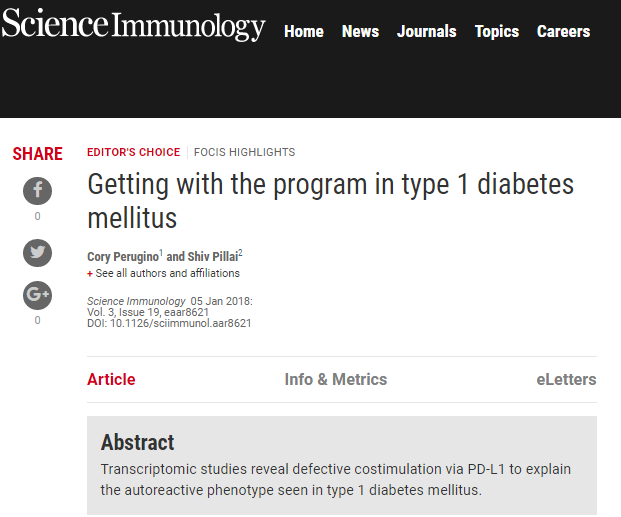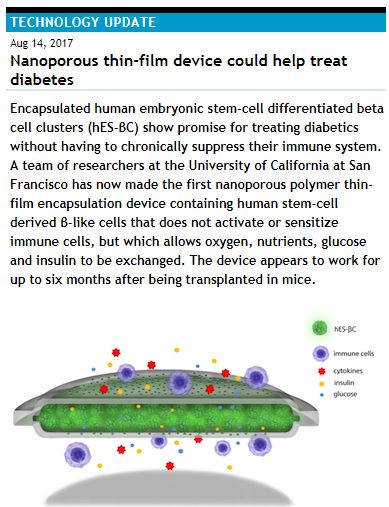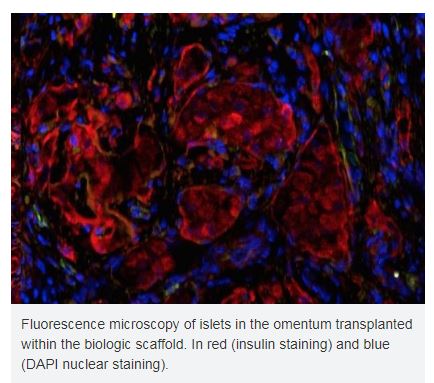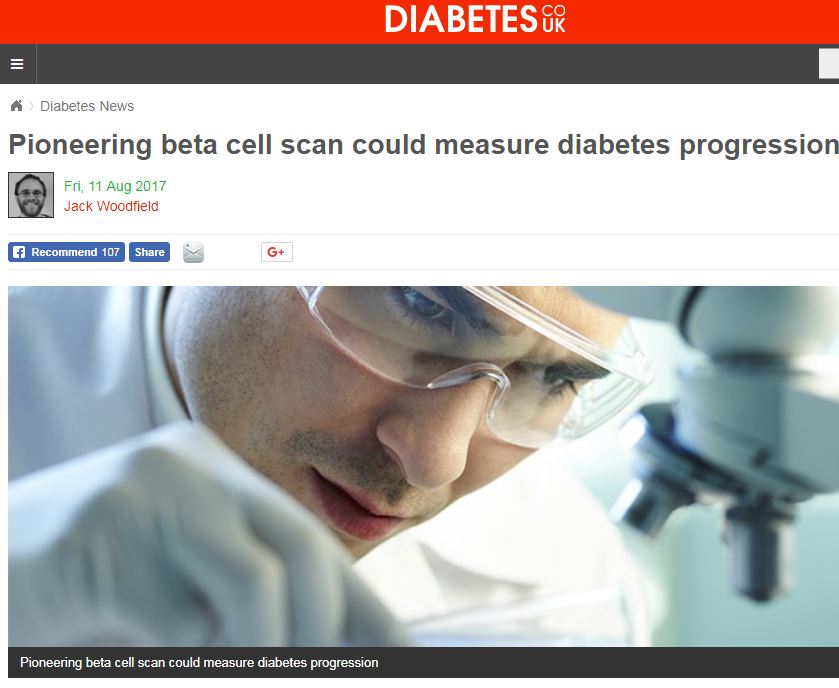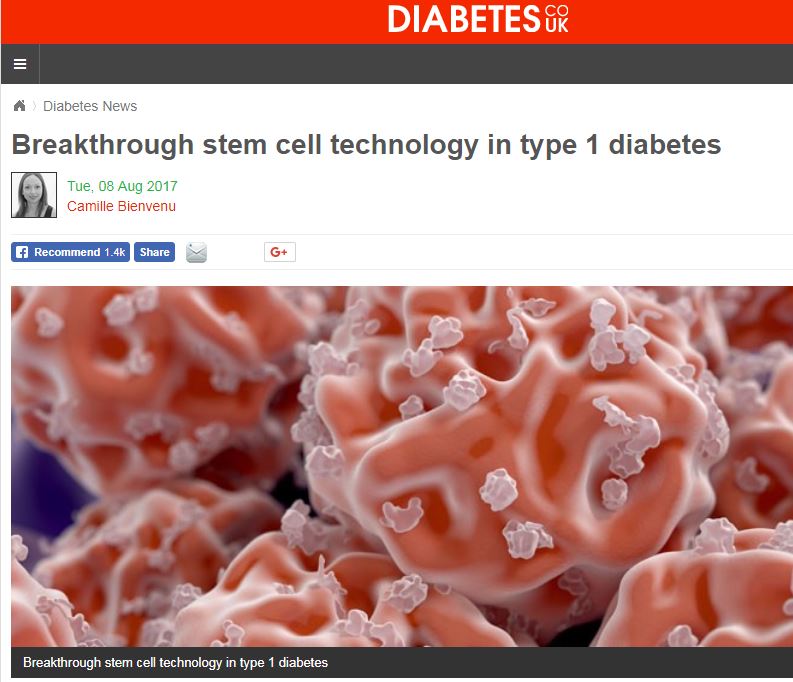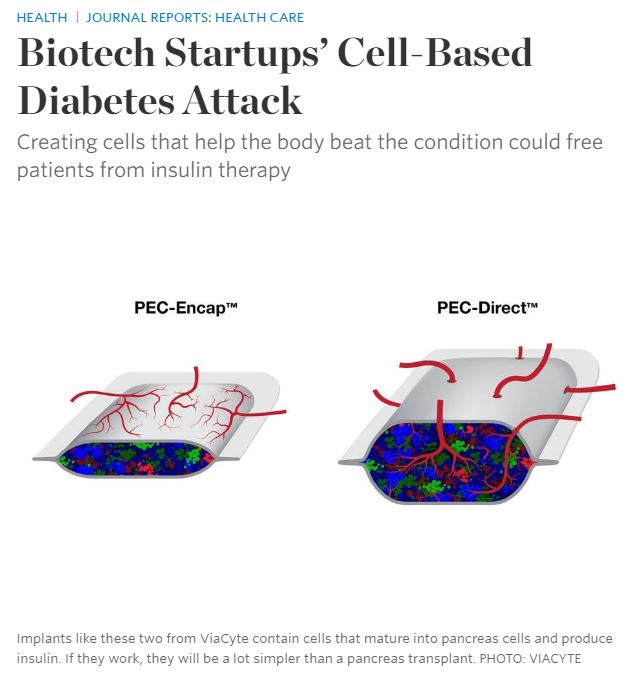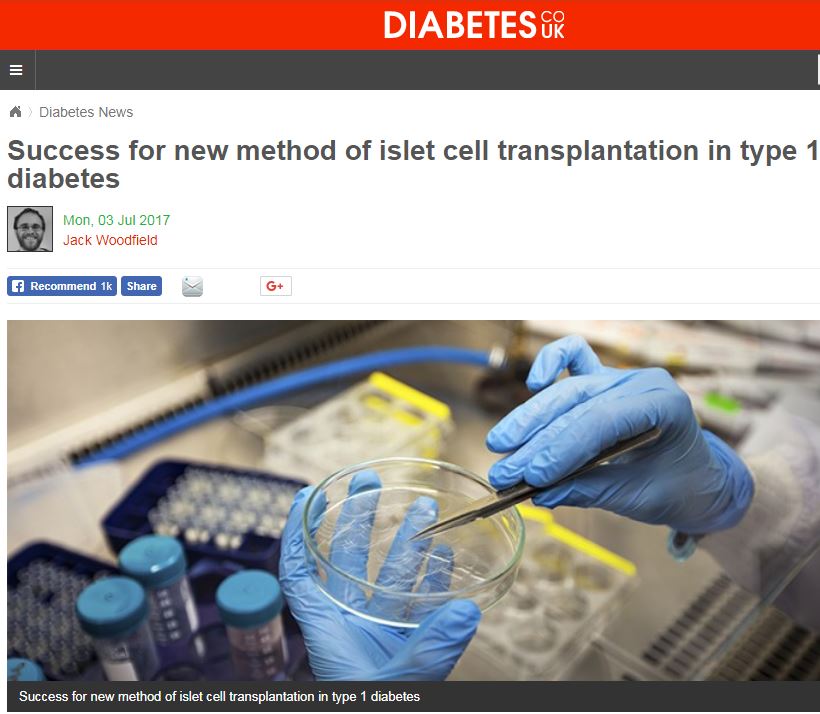News

1922 - 2019: the first injection of insulin, 97 years ago
On 11 January 1922 the first injection of insulin was given to Leonard Thompson, a 14-year-old boy with diabetes by Sir Frederick Banting's team at Toronto General Hospital, Canada. From that day on, research has made incredible progress, thanks, above all, to the people that made one of the twentieth century’s greatest medical discoveries that gave hope to the people with diabetes.
Getting with the program in type 1 diabetes mellitus
A recent study published in Science Immunology gives new insight into T1D autoimmunity and suggests promise for autologous stem cell therapy
Nanoporous thin-film device could help treat diabetes
Encapsulated human embryonic stem-cell differentiated beta cell clusters (hES-βC) show promise for treating diabetics without having to chronically suppress their immune system.
The best place to treat type 1 diabetes might be just under your skin
Researchers transplanted healthy pancreatic cells under the skin to produce insulin for blood glucose regulation.
Pioneering beta cell scan could measure diabetes progression
A pioneering way to measure the quantity of cells which release insulin in the pancreas has been developed, researchers have said.
Breakthrough stem cell technology in type 1 diabetes
A regenerative therapy company, known as Viacyte, just announced that a few patients have successfully been implanted with a pouch of stem cells they manufacture.
Biotech Startups’ Cell-Based Diabetes Attack
Creating cells that help the body beat the condition could free patients from insulin therapy.
Success for new method of islet cell transplantation in type 1 diabetes
A new pioneering way of importing insulin-producing cells to combat type 1 diabetes works in mice, a clinical trial has found.
Novel tissue-engineered islet transplant achieves insulin independence in type 1 diabetes
Diabetes scientists have produced the first clinical results demonstrating that islet cells transplanted within a tissue-engineered platform can successfully engraft and achieve insulin independence in type 1 diabetes
